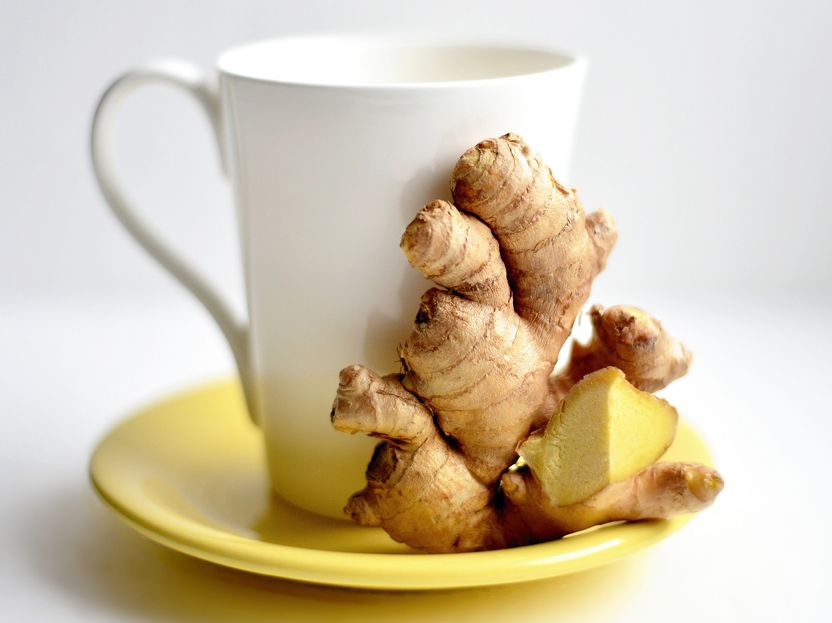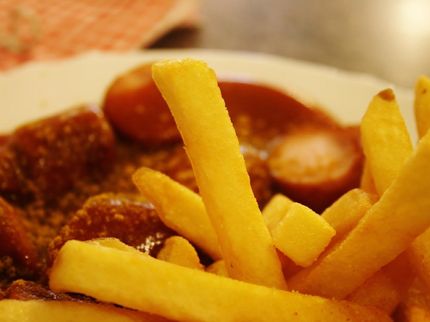Pungent Ginger Compound Puts Immune Cells on Heightened Alert
Ginger compound enters the blood
ginger has a reputation for stimulating the immune system. New results from the Leibniz Institute for Food Systems Biology at the Technical University of Munich (Leibniz-LSB@TUM) now support this thesis. In laboratory tests, small amounts of a pungent ginger constituent put white blood cells on heightened alert. The study also shows that this process involves a type of receptor that plays a role in the perception of painful heat stimuli and the sensation of spiciness in food.

Symbolic image
pixabay.com
Whether as a medicinal plant or foodstuff, ginger is also becoming increasingly popular in Germany. According to the German Federal Statistical Office, the annual import volume of the fruity-hot root has almost quadrupled over the last ten years to around 31,600 tons. However, even though ginger consumption has increased, the question arises as to whether normal consumption levels are sufficient to achieve health effects. And if so, which compounds and molecular mechanisms play a role in this.
Ginger compound enters the blood
To help clarify these questions, a team led by Veronika Somoza, director of the Leibniz Institute in Freising, Germany, conducted extensive research. The starting point was a result of an earlier pilot study, in which first author Gaby Andersen from the Leibniz-LSB@TUM also played a key role. As the study shows, significant amounts of pungent ginger compounds enter the blood about 30 to 60 minutes after consuming one liter of ginger tea. By far the highest levels were achieved by [6]-gingerol, with plasma concentrations of approximately 7 to 17 micrograms per liter.
The pungent compound is known to exert its "taste" effect via the so-called TRPV1 receptor, an ion channel located on the surface of nerve cells that responds to painful heat stimuli as well as to pungent compounds from chili and ginger. Since some studies suggest that white blood cells also possess this receptor, the research team tested whether [6]-gingerol influences the activity of these immune cells.
Pungent compound stimulates white blood cells
In a first step, the team succeeded in detecting the receptor on neutrophil granulocytes. These cells make up about two-thirds of white blood cells and serve to combat invading bacteria. Further laboratory experiments by the research group also showed that even a very low concentration of almost 15 micrograms of [6]-gingerol per liter is sufficient to put the cells on heightened alert. Thus, compared to control cells, the stimulated cells reacted about 30 percent more strongly to a peptide that simulates a bacterial infection. Addition of a TRPV1 receptor-specific inhibitor reversed the effect induced by [6]-gingerol.
"Thus, at least in experiments, very low [6]-gingerol concentrations are sufficient to affect the activity of immune cells via the TRPV1 receptor. In blood, these concentrations could theoretically be achieved by consuming about one liter of ginger tea," says Gaby Andersen. "So, our results support the assumption that the intake of common amounts of ginger may be sufficient to modulate cellular responses of the immune system. Nevertheless, there are still many unanswered questions at the molecular, epidemiological and medical levels that need to be addressed with the help of modern food and health research," concludes Veronika Somoza.
Original publication
Other news from the department science

Get the food & beverage industry in your inbox
By submitting this form you agree that LUMITOS AG will send you the newsletter(s) selected above by email. Your data will not be passed on to third parties. Your data will be stored and processed in accordance with our data protection regulations. LUMITOS may contact you by email for the purpose of advertising or market and opinion surveys. You can revoke your consent at any time without giving reasons to LUMITOS AG, Ernst-Augustin-Str. 2, 12489 Berlin, Germany or by e-mail at revoke@lumitos.com with effect for the future. In addition, each email contains a link to unsubscribe from the corresponding newsletter.



























































